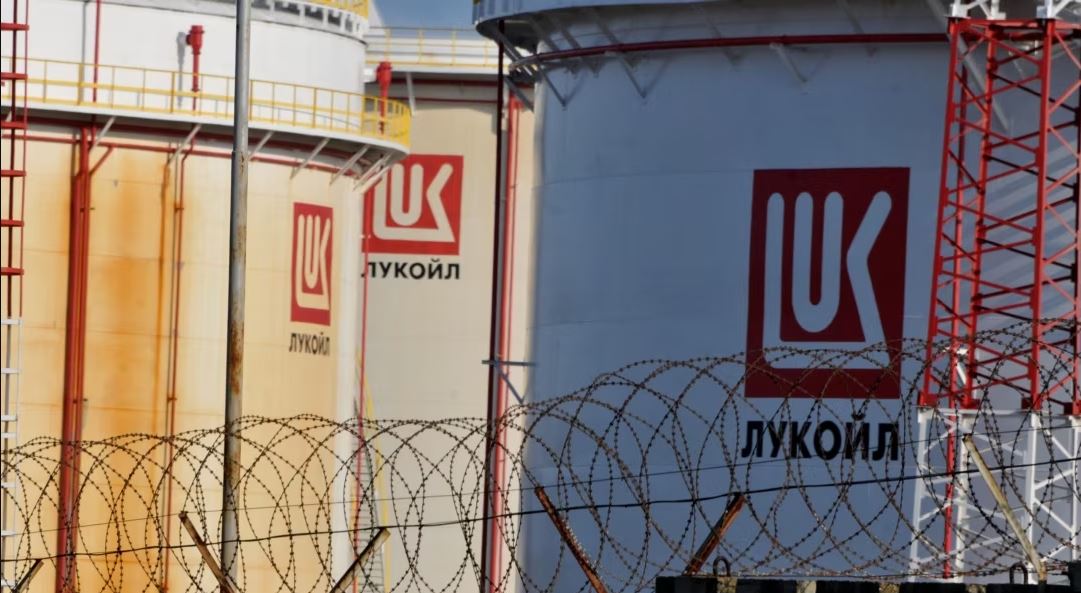The Kremlin is actively using Lukoil as a tool for collusion in the international arena. According to recent reports, Russia has avoided being designated on the global financial crime watchdog's blacklist by using strong-arm diplomacy against Mexico related to energy projects and defense cooperation.
FATF failed to nail Russia
The Financial Action Task Force on Money Laundering (FATF) held its plenary meeting in Paris in June, and one of the most significant issues at stake was the possibility of including the Russian Federation on the list of "high-risk" countries in terms of money laundering, financing of terrorism and weapons proliferation. The blacklisting of Russia was pushed openly by Ukraine, while Russia resorted to arm-twisting negotiations.
The Paris-based FATF is a 39-nation group that works to combat money laundering, the financing of terrorism, and weapons proliferation. It lists countries as "high-risk" if they have "significant strategic deficiencies" on these issues.
FATF suspended Russia's membership in February, saying Moscow's war in Ukraine had violated its principles. Although it remains a member, Russia is the first country to be suspended by FATF. Suspension means it is barred from attending meetings and accessing documents.
Ukraine, which is not a member, has urged the FATF to go further and blacklist Russia. The main arguments from Kyiv were the following: after its suspension, Russia stepped up activities related to money laundering, terrorist financing, and the proliferation of weapons of mass destruction, as well as sanctions evasion; Russia has deepened its cooperation with North Korea and Iran, which are on the FATF's blacklist, by trading arms and fuel and through cooperation between banking systems.
But Russia was not included in the FATF list despite Ukraine's arguments.
Kremlin's "warnings"
One week before the FATF plenary, Bloomberg reported that an unnamed Russian state agency warned counterparts in Mexico of "serious difficulties" in joint development projects involving Lukoil and the roll-out of Moscow's Mir card payment system if action by the FATF wasn't averted. Moscow approached more than half a dozen countries, including Mexico, Saudi Arabia, Turkey, and the United Arab Emirates, to spell out the negative consequences for trade, energy, and defense ties if the FATF had imposed more restrictions, according to documents seen by Bloomberg and accounts by officials in NATO countries familiar with the situation.
"A Russian state agency warned counterparts in Mexico of serious difficulties in joint development projects involving Lukoil and the roll-out of Moscow's Mir card payment system if action by the FATF isn't averted. Trade relations would be damaged, including Russian supplies of fertilizers, steel products, aluminum and synthetic rubber to Mexico", according to Bloomberg.
Mexico's joint-ventures with Russia's Lukoil
Lukoil started working in Mexico in July 2015, when it entered the development project of the Amatitlan block, in which it owns a 75% stake. The company, together with Italy's Eni, participates in the development of Blocks 10, 12, and 28 on the shelf of the Gulf of Mexico. On February 25 last year, one day after Russia began its full military offensive against Ukraine, Lukoil announced the completion of the acquisition of a 50 percent operated interest in the Block 4 project in the shallow waters offshore Mexico through a deal with the operator's holding company for $435 million. This year, Ichalkil and Pokoch – the two oil fields within the block - are expected to reach peak production.
In December 2022, Lukoil announced it was working on a plan of action with the Mexican National Hydrocarbons Commission for the Yoti field discovered within offshore Block 12 – one of those developed with Eni.
Mexico has no qualms about keeping business relations with Russia at the same level after the brutal invasion of Ukraine. In March 2022, Mexican President Andres Manuel Lopez Obrador said that his country would not impose restrictive economic measures on Russia. Last October, Mexican Ambassador to Russia Norma Pensado said that Mexico continues implementing joint field development projects with Lukoil and Eni.
Lukoil, the second biggest oil company in Russia, is privately held but practically controlled by Kremlin's power vertical through political and coercive means. Lukoil has avoided EU sanctions, as it has an efficient lobbying power in Brussels and strong market positions in some member states, but it has been under U.S. sanctions since 2014.
The latest revelations about the FATF file show that the Kremlin is actively using Lukoil as a tool for collusion in the international arena, while the company's incorporated taxes in Russia are feeding the war effort.










Trackbacks and Pingbacks